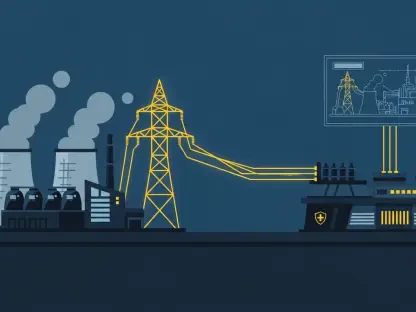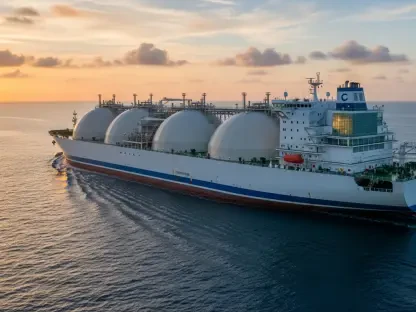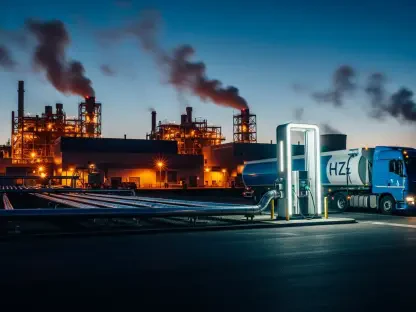In a transformative stride toward sustainable urban mobility, Cologne, Germany, is witnessing a groundbreaking initiative by the Cologne Public Transport Authority, known as KVB, with the addition of 78 electric buses to its fleet. This procurement stands as the largest single bus order in KVB’s history, signaling a strong commitment to reducing carbon emissions and improving air quality in one of Germany’s major cities. Partnering with Irizar e-mobility and Jebsen & Jessen e-Mobility, KVB is not only revolutionizing its own operations but also contributing to a global movement aimed at combating climate change through cleaner public transportation. With nearly two-thirds of its own buses transitioning to electric power, and close to half of the entire network—including subcontractor-operated vehicles—following suit, this move underscores a growing recognition among urban centers worldwide that zero-emission transport is essential for a healthier, more sustainable future. This ambitious project sets a powerful example for other cities grappling with pollution and congestion challenges.
Cutting-Edge Technology for Modern Needs
The fleet of 78 electric buses, split between 38 articulated and 40 solo models, represents more than just an environmental upgrade—it embodies a leap forward in technology tailored to Cologne’s specific urban landscape. These buses are equipped with state-of-the-art features like air conditioning and full accessibility for individuals with disabilities, ensuring an inclusive and comfortable experience for all passengers. Designed to handle the city’s narrow streets, weight-restricted bridges, and low underpasses, they demonstrate a thoughtful balance between sustainability and practicality. On the technical front, the buses carry substantial battery capacities, with articulated models boasting up to 613.8 kWh, enabling ranges of 180 to 260 kilometers. This marks a significant improvement over earlier electric models in KVB’s fleet, ensuring reliability across demanding urban routes with powerful electric motors sourced from Cummins.
Beyond raw performance, the focus on operational efficiency and passenger comfort sets these buses apart as a benchmark for modern public transport. Advanced charging infrastructure, including depot chargers and opportunity charging at terminal stops, supports seamless service with minimal downtime. The quiet operation of these electric vehicles also plays a crucial role in reducing noise pollution, a persistent issue in densely populated areas like Cologne. This thoughtful integration of technology not only enhances the day-to-day experience for riders but also addresses broader urban challenges, proving that eco-friendly solutions can align with the needs of a bustling city. As KVB rolls out these buses, the initiative highlights how innovation can drive both environmental goals and improved quality of life, offering a model for other municipalities to emulate in their own sustainability efforts.
Environmental Impact and Urban Livability
One of the most compelling aspects of KVB’s electric bus rollout is the profound environmental benefit it brings to Cologne. Powered entirely by green electricity, these 78 buses operate without emitting harmful exhaust fumes, directly contributing to a climate-neutral public transport system. This shift is poised to make a tangible difference in air quality, a critical concern in urban areas where pollution from traditional diesel vehicles has long posed health risks to residents. By prioritizing zero-emission technology, KVB is taking a proactive stance in mitigating the effects of climate change, aligning with stringent European standards for cleaner cities. The move reflects a broader understanding that sustainable transport is not a luxury but a necessity for safeguarding public health and the environment in densely populated regions.
Additionally, the near-silent operation of these electric buses offers a significant boost to urban livability beyond just cutting emissions. Noise pollution, often overlooked in discussions about transport, can profoundly affect the well-being of city dwellers, particularly in high-traffic zones. By minimizing sound during operation, these vehicles help create quieter, more peaceful neighborhoods, enhancing the overall quality of life for Cologne’s residents. This dual benefit—cleaner air paired with reduced noise—positions the initiative as a holistic solution to some of the most pressing challenges facing modern cities. It also serves as a reminder that sustainable innovations can deliver immediate, noticeable improvements to daily life, reinforcing the value of investing in green technology for public infrastructure.
Partnerships Powering Sustainable Progress
The successful rollout of KVB’s electric bus fleet is a testament to the power of collaboration across multiple levels of governance and industry. A Europe-wide tender process ensured a competitive selection, ultimately awarding the contract to Jebsen & Jessen e-Mobility, representing Spain-based Irizar e-mobility, for their optimal balance of cost and quality. Financial support from the state of North Rhine-Westphalia, covering 60 percent of the additional costs compared to diesel buses, has been instrumental in making this transition feasible under the Public Transport Act. This partnership extends to comprehensive after-sales service and integration support, ensuring that the buses are seamlessly incorporated into Cologne’s existing network. Such multi-tiered cooperation highlights how local, regional, and international efforts can converge to drive meaningful progress in clean transport.
This initiative also fits into a larger European trend, with cities like Madrid, Paris, and London already benefiting from similar electric bus deployments by Irizar e-mobility. The emphasis on European-manufactured components, including in-house battery production, reflects a commitment to regional quality and self-sufficiency in the electric vehicle sector. Moreover, the backing from regional governments underscores a shared recognition that public investment is vital to overcoming the higher upfront costs of electric fleets. KVB’s strategic approach, blending diverse supplier partnerships with state funding, illustrates a scalable framework for accelerating the adoption of sustainable transport solutions. This collaborative model not only benefits Cologne but also offers valuable insights for other urban authorities aiming to decarbonize their public transit systems in the face of financial and logistical hurdles.
A Milestone for Future Green Mobility
Looking back, KVB’s addition of 78 electric buses marked a historic turning point for Cologne’s public transport system, cementing its position as a leader in sustainable urban mobility. The initiative significantly reduced the city’s reliance on fossil fuels, with a substantial portion of the fleet transitioning to electric power, delivering cleaner air and quieter streets to residents. Reflecting on this achievement, it became clear that the blend of advanced technology, tailored design, and robust partnerships laid a strong foundation for lasting environmental impact. This effort stood as a powerful demonstration of what could be accomplished when innovation and collaboration aligned with a clear vision for a greener future.
Moving forward, the focus should shift to expanding such initiatives, leveraging lessons learned to further integrate electric buses into even more routes and networks. Exploring additional funding mechanisms and incentives could help address remaining cost barriers, while continuous advancements in battery technology and charging infrastructure promise to enhance efficiency. Engaging with other cities to share best practices could amplify the impact, creating a ripple effect across Europe and beyond. Ultimately, sustaining momentum through policy support and public awareness will be key to ensuring that clean transport remains a priority, driving urban centers toward a healthier, more sustainable tomorrow.









